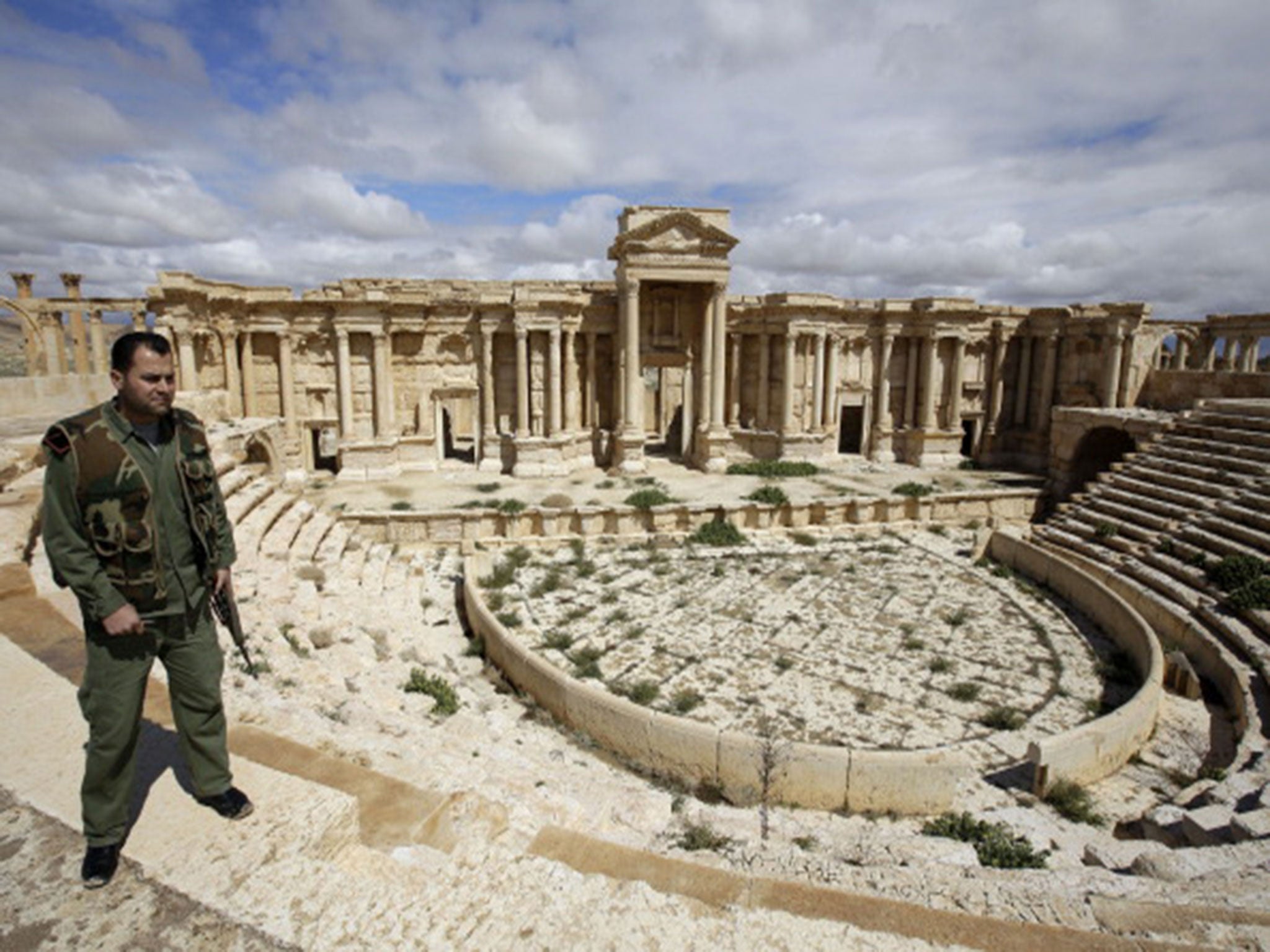Isis threatens Palmyra, the ancient city that stands for both empire and resistance
The art and architecture express something which speaks to us centuries later

Your support helps us to tell the story
From reproductive rights to climate change to Big Tech, The Independent is on the ground when the story is developing. Whether it's investigating the financials of Elon Musk's pro-Trump PAC or producing our latest documentary, 'The A Word', which shines a light on the American women fighting for reproductive rights, we know how important it is to parse out the facts from the messaging.
At such a critical moment in US history, we need reporters on the ground. Your donation allows us to keep sending journalists to speak to both sides of the story.
The Independent is trusted by Americans across the entire political spectrum. And unlike many other quality news outlets, we choose not to lock Americans out of our reporting and analysis with paywalls. We believe quality journalism should be available to everyone, paid for by those who can afford it.
Your support makes all the difference.I arrived in Palmyra on a cloudless morning after a drive through the desert from Damascus. It is an astonishing sight, the ruins of one of the great cities of antiquity rising against a background of low hills. Walking along the colonnaded main street, with temples and the foundations of shops to either side, it is possible to imagine the bustling life of this oasis city almost 2,000 years ago.
Last week, fighters from Islamic State (Isis) reached the gates of Palmyra, prompting fears that the city will be subjected to the kind of wanton destruction witnessed at archaeological sites in Iraq. Palmyra was occupied for a few months in 2013 by fighters who oppose the country’s dictator, President Assad, but they did not share the fanatical iconoclasm of Isis. Its fighters have already behaved with customary barbarity, seizing nearby villages and murdering more than two dozen civilians. At least 10 were beheaded.
The thought of Palmyra in the hands of these nihilistic thugs is too awful to contemplate. Cities are not just inanimate objects, fascinating though it is to see buildings that are thousands of years old. They are the work of human beings who used art and architecture to express something about themselves which speaks to us centuries later.
In this instance, Palmyra represents both the power of the Roman empire and resistance to it, incorporating Graeco-Roman and eastern culture in an extraordinary amalgam of styles. The emperor Hadrian visited in AD129 and declared Palmyra a free city, but in the 3rd century its widowed queen, Zenobia, led a revolt against Roman rule. She was defeated by Caracalla and taken to Rome, where the emperor’s decision to parade a captive queen through the streets in gold chains caused disquiet in the Senate.
When I visited Palmyra two decades ago, it wasn’t a great tourist destination because of the Assad regime’s political isolation. I was able to walk round without meeting many other tourists but there was a surreal moment when a plane landed and Bill Clinton’s Secretary of State, Warren Christopher, stepped out. We exchanged a few words and he was hurried around the site by American diplomats before his plane roared off.
I don’t think I knew at the time that the modern town of Palmyra, known as Tadmur in Arabic, was home to one of Assad’s worst prisons. A few years later, I met a Syrian poet who had been incarcerated there in conditions so horrific that people said “the person who enters is lost and the one who leaves is born”. The juxtaposition of a great cultural site and a torture centre didn’t worry the regime, which has never valued anything but its own survival. Before the current conflict, Syria was one of the most culturally rich countries in the world. It is tragic that so many people have been murdered or forced into exile, but Assad’s myriad crimes against his own people include his failure to protect their astonishing heritage.
Join our commenting forum
Join thought-provoking conversations, follow other Independent readers and see their replies
Comments